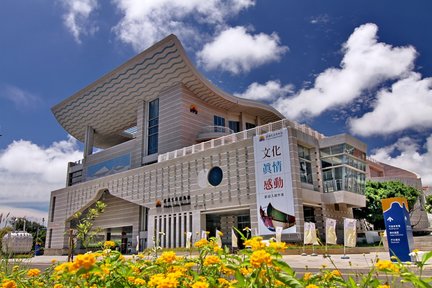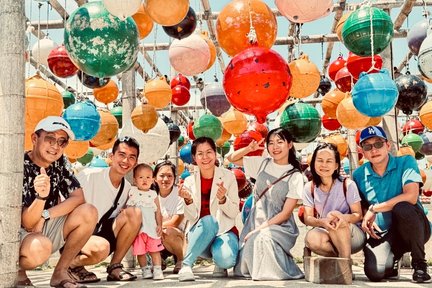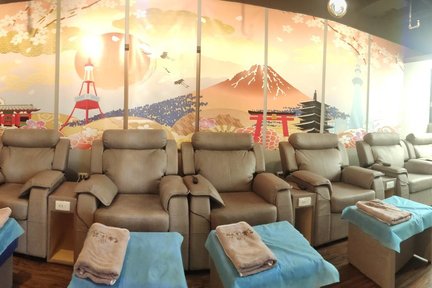觀音亭
觀音亭のおすすめ
絶対に外せない体験
旅にぴったりのホテル
ラクラクの移動手段
グルメ&レストラン
觀音亭のクチコミ
周辺のお出かけ先
觀音亭に関するよくある質問
澎湖観音寺を訪れるのに最適な時期はいつですか?
澎湖観音寺にはどうやって行けますか?
澎湖観音寺を訪れる際に注意すべきことは何ですか?
觀音亭に行くなら外せない!
おすすめの観光スポット
Pavilion of Guanyin
The main attraction of Penghu Guanyin Temple, the Pavilion of Guanyin, is a symbol of spiritual reverence and architectural beauty. Visitors can marvel at the intricate details and serene atmosphere of this sacred space.
Firework Festival
Every year from April to June, the Firework Festival at Guan-Yin-Ting attracts thousands of visitors. Experience the vibrant colors and festive atmosphere as the night sky lights up with dazzling displays.
Rice-Stone Lions
Admire the unique pale green lions made of rice paste, ash, and brown sugar that have stood guard in front of the temple for centuries, a rare sight in Penghu.
Culture and History
Founded in 1696 during the Qing dynasty by Xue Kui, a military officer, Penghu Guanyin Temple holds significant historical and cultural importance. Explore the chronology of repairs and constructions that have shaped this iconic temple over the centuries.
Local Cuisine
While visiting Penghu Guanyin Temple, don't miss the opportunity to savor delicious local dishes. Indulge in fresh seafood delicacies and traditional Taiwanese flavors that will tantalize your taste buds.
Layout of the Temple
The temple's unique design by Master Hsieh Jiang and his son features a gable roof, bell towers, and a combination of open walkways, side rooms, and courtyards, creating a rare architectural masterpiece in Taiwanese temples.
Bell Pavilion
Visit the bell tower beside the temple square, housing a historic bell from the old Guanyin Temple, repaired and installed in 1980, adding to the temple's spiritual ambiance.
Cultural Traditions
Immerse yourself in the rich cultural traditions of Penghu County, where over 200 temples uphold the practice of praying with turtle-shaped pastries and elaborate rice bag turtle creations.
Historical Significance
Discover the historical significance of the Lantern Festival in Penghu, where residents come together to celebrate community spirit, longevity, and the art of traditional craftsmanship.



